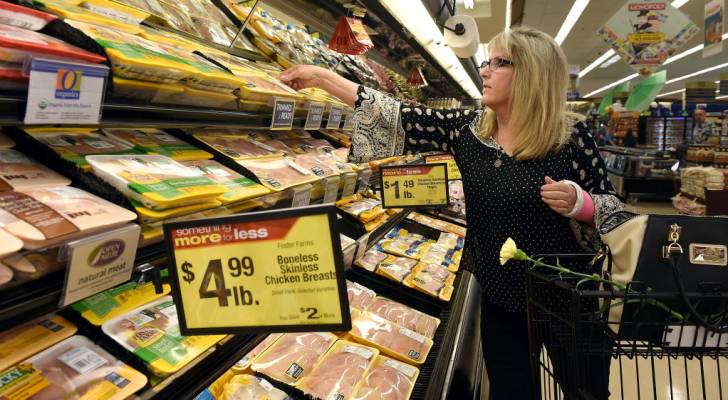Washington state Attorney General Bob Ferguson has added a feather to his cap: he has successfully sued the nation’s largest chicken and tuna producers for engaging in practices he believes caused families to overpay by millions of dollars.
After reaching legal resolutions with 15 major chicken producers and four big tuna companies — all accused of inflating and manipulating prices — Ferguson’s office is now returning $40.6 million in restitution to approximately 402,200 low-income Washington households.
Don’t miss
“When powerful interests break the law and harm Washingtonians, my office holds them accountable, and prioritizes getting money back to those who were most impacted,” Ferguson said. “Washington families were cheated by corporate price-fixing conspiracies they knew nothing about.”
Conspiracy in the coop
Ferguson filed a lawsuit against 19 chicken producers — who account for approximately 95% of chickens sold for consumption in the U.S. — in 2021, accusing them of engaging in a wide-ranging illegal conspiracy to inflate and manipulate prices, rig contract bids and coordinate industry supply reductions to maximize profits.
At the time, he commented: “If you’ve eaten chicken in the last decade, this conspiracy touched your wallet. This conspiracy cost middle-class and low-income Washington families more money to put food on their table. I will hold these companies accountable for the profits they illegally made off the backs of hardworking Washington families.”
The Attorney General’s Office conducted an extensive investigation through which it claims to have uncovered an industry-wide effort to restrain chicken production through the exchange of competitively sensitive information, signals during investor calls and direct coordination between players in the industry. The authorities assert that all 19 chicken producers egged each other on to drive up the price of chicken since at least 2008.
On Dec. 6, Ferguson announced his office had received $35.5 million through legal resolutions with 15 of the major chicken producers — including giants like Tyson Foods, Pilgrim’s Pride and Perdue Farms.
A trial against the remaining co-conspirators — Foster Farms, Wayne-Sanderson Farms and House of Raeford Farms — is scheduled for October 2024.
Read more: Thanks to Jeff Bezos, you can now use $100 to cash in on prime real estate — without the headache of being a landlord. Here’s how
Catching the big tuna
Washington also won $5.1 million from similar cases against big tuna companies — including a a $4.1 million resolution with StarKist, a $500,000 resolution with Chicken of the Sea, a $100,000 resolution with former Bumble Bee Tuna CEO Christopher Lischewski, and $450,000 in sanctions against StarKist’s parent company, Dongwon.
The tuna lawsuit, which Ferguson filed in 2020, accused executives of secretly exchanging internal company policies and data with the aim of manipulating the market.
Specifically, Lischewski was accused of complaining to the other ‘big tunas’ that canned tuna was “too cheap” and he wanted to hike the price for consumers. Two of his subordinates testified that he gave “a very clear, direct” order to fix canned tuna prices.
When Ferguson filed the lawsuit in 2020, he said: “We cannot have a free market when corporate titans are able to tip the scales to their own bank accounts. Washingtonians lost millions as a result of this corporate greed. I intend to get that back for them.”
Easing the financial strain
To help low-income families impacted by these price gouging scandals, the Attorney General’s Office is sending checks to every Washington household whose income is at or below 175% of the federal poverty level.
Single-person households will receive a $50 check and multi-person households will receive a $120 check. The first round of checks were sent on Dec. 5 and the rest will be sent before Dec. 31. In total, more than 1.2 million Washingtonians, or approximately 15% of the state population, reside in households receiving checks.
“Now those who felt this gouging most severely are receiving checks from my office,” said Ferguson. “The holiday season puts a financial strain on families, and we hope Washingtonians are helped by these checks.”
What to read next
This article provides information only and should not be construed as advice. It is provided without warranty of any kind.




